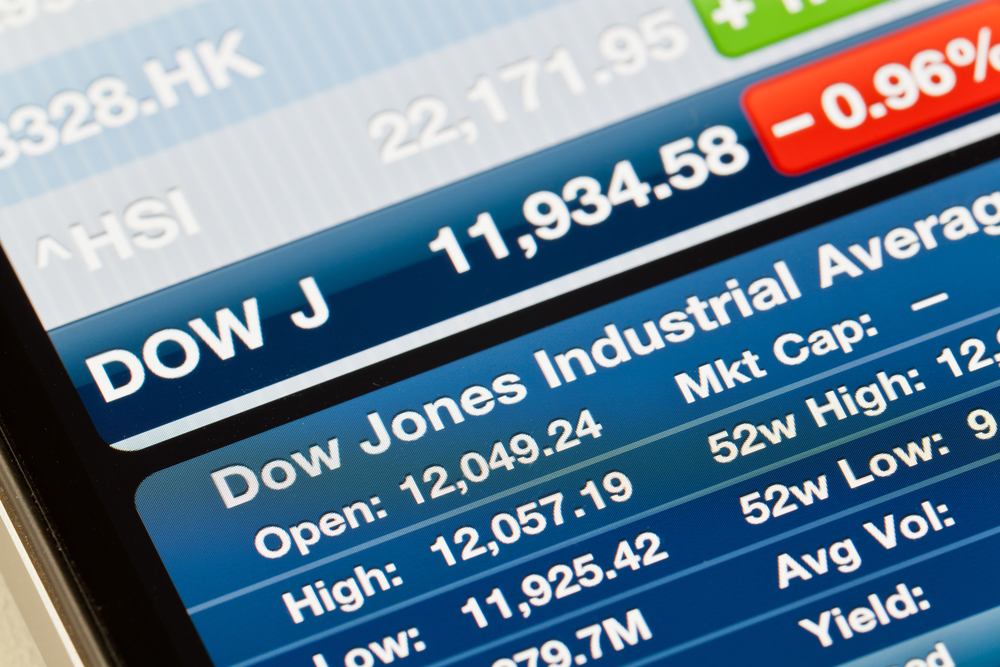A stock market index is a measurement of a portion of the stock market. It is calculated from the prices of selected stocks (often a weighted average). It is a tool used by financial managers and investors to describe the market, and to compare the return on specific investments. Below you will find an interactive chart of some of the world's largest stock indexes. How to invest using a market index.

Investors will undoubtedly hear about “the Dow (NYSEARCA: DIA), the S&P 500 (NYSEARCA: SPY), and the Nasdaq (NYSEARCA: QQQ)” when using any financial news source. These are all examples of a market index and are in fact the three benchmark indices most watched by investors.
A market index provides a snapshot of market activity based on a grouping of stocks. Some benchmarks, like the ones listed above, provide a broader view of the entire market. Other index funds and there are thousands of them, have a much narrower focus but the goal is the same; to give investors a summary of what is going on in the broader market or within a specific segment of the market.
Although an investor cannot invest money directly into a market index, they can attempt to match the index’s performance by investing in a mutual fund or exchange-traded fund (ETF) that uses an index as a benchmark. The popularity of index fund investing has created a wide market for these passive funds.
Not surprisingly the number of index-based funds has increased along with the number of indices. Index funds provide investors with a form of diversification and can also take a little of the risk out of speculating in emerging markets.
While no one index is considered the best, the three listed above (the Dow, S&P 500, and Nasdaq, along with the Russell indices) are generally considered good barometers for the broader market.
Market Indexes For Investing
Many students take advantage of SparkNotes (or CliffsNotes if you're of a certain age). These study guides provided a quick summary of a book we didn't want to read or one we fell behind in reading. While they don't provide all the nuance of reading a book, they can hit on the main themes and give us a basic overview of what the student needs to know.
For investors, market indexes serve the same purpose. While not providing all the information an investor will need, they can be a useful guide for understanding where the money is moving in the market.
In this article, we'll define a market index and why they are important. We'll also go into some detail about the significance of the weighting methodologies they use and give an overview of index mutual funds and ETFs that peg their performance to the performance of a particular index.
What is a stock market index?
A stock market index is a theoretical portfolio of investment holdings that represent a particular segment of the financial market. The value of the index is determined by calculating the prices of the underlying holdings. In most cases, the index uses a form of weighting which is a way to adjust the individual impact of components within the index.
The most common types of weighting are market-cap weighting, revenue-weighting, float-weighting, and fundamental weighting. Investors cannot invest directly in an index so they are used as benchmarks for creating mutual funds and exchange-traded funds (ETFs) known as index tracking funds.
Why are market indexes important?
Stock market indexes act as indicators for national economies and the global economy. The three most commonly recognized indexes in the United States are the S&P 500, the Dow Jones Industrial Average (otherwise called the Dow), and the Nasdaq Composite. However, there are approximately 5,000 indexes for the U.S. equity markets alone. Most of the indexes have a very specific focus based on a sector (e.g. biotech, utilities) or investment objective (e.g. fixed income, growth). Some indexes also focus exclusively on international stocks (e.g. the FTSE 100).
In the bond market, the U.S. Aggregate Bond Market Index is considered to be one of the most popular proxies for U.S. bonds.
Why are market indexes weighted?
Weighting is a way of making an index more representative of the market it tracks. In that way, weighting a stock market index is like the Electoral College. Areas with a higher population are assigned more electoral votes and why the same states are “battleground” states in every national election.
A stock market index assigns a weighting methodology based on what the creator of the index deems to be most appropriate. For example, in a price-weighted index, a small price change in a stock that is trading at $30 would have less impact on the index than the same price change in a stock that is trading at $100. The Dow Jones Industrial Average (DJIA) is an example of a price-weighted index.
A market-cap weighted index, by contrast, will assign more significance to the price movement of companies that have the largest market capitalization. A company's market cap is simply the value of a single share multiplied by the number of total shares outstanding (i.e. the number of shares available to be publicly traded).
How to invest using a market index
Investors cannot invest directly in a market index but there is a wide range of mutual funds and exchange-traded funds that tie their performance to a specific index. In the case of a passively managed fund like an ETF, the fund manager is simply trying to ensure that the performance of the fund matches the performance of its corresponding index. In an actively managed fund, the fund manager will attempt to outperform the fund's correspon
